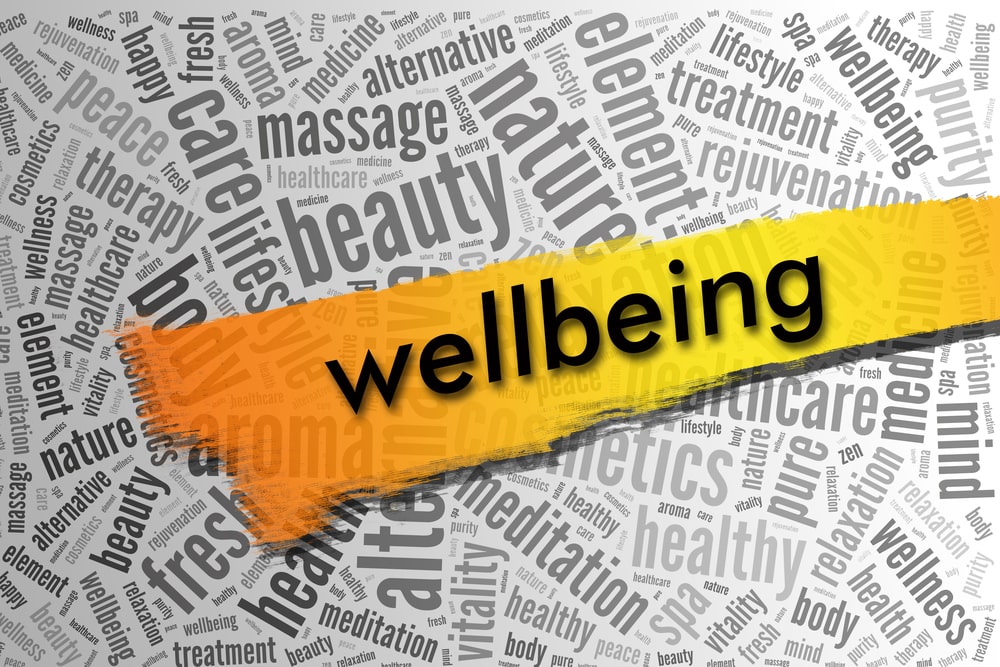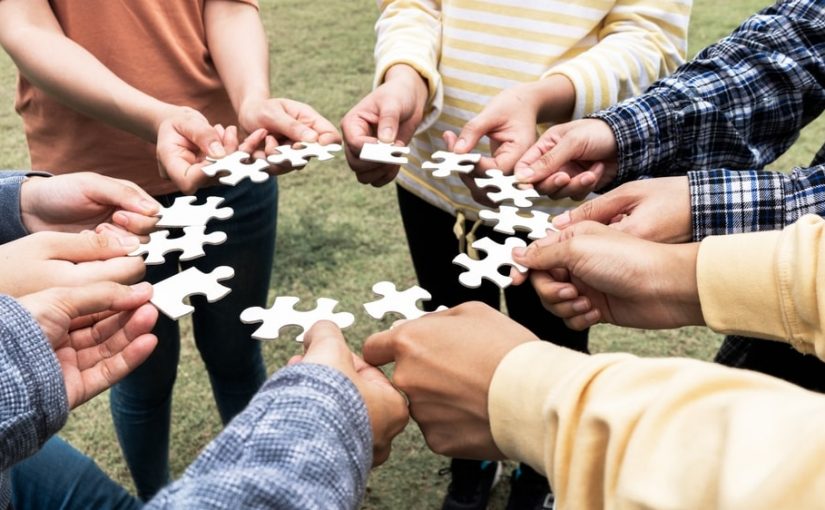Social Well-being: Building Healthy Relationships
In the fast-paced world of today, where technology is omnipresent, the importance of social well-being cannot be overstated. Social well-being refers to the quality of our relationships, connections, and interactions with others, and it plays a crucial role in our overall mental and emotional health. In the age of social media and digital communication, fostering genuine connections has become both challenging and essential.
What is Social Well-being?

Social well-being refers to the state of an individual’s overall health and happiness in the context of their social relationships, interactions, and community involvement.
It encompasses various aspects of a person’s life, including their connections with family, friends, colleagues, and the broader community. Social well-being is not just about the absence of negative social conditions but also involves actively fostering positive and fulfilling relationships.
Key components of social well-being include:
- Social Connections: The quality and depth of an individual’s relationships with others, including family, friends, and community members, play a significant role in social well-being.
- Support System: Having a reliable support network is crucial for social well-being. This support can be emotional, practical, or informational and is essential during both challenging times and moments of celebration.
- Community Involvement: Engaging with and contributing to one’s community promotes a sense of belonging and shared purpose. This involvement may include participation in community events, volunteering, or collaborating with others on common goals.
- Communication Skills: Effective communication is vital for building and maintaining positive relationships. Being able to express oneself, listen actively, and navigate interpersonal dynamics contributes to social well-being.
- Sense of Belonging: Feeling connected to a group or community fosters a sense of belonging, which is fundamental to social well-being. This sense of belonging can come from cultural, religious, or interest-based affiliations.
- Positive Interactions: Encounters with others that are positive, supportive, and meaningful contribute to social well-being. Positive social interactions promote a sense of joy, fulfillment, and satisfaction.
- Healthy Boundaries: Establishing and maintaining healthy boundaries in relationships is crucial for social well-being. This involves understanding one’s needs, communicating effectively, and respecting the needs of others.
- Emotional Intelligence: Being aware of one’s own emotions and understanding the emotions of others enhances emotional intelligence. This skill is beneficial for building empathetic and supportive relationships.
Types of Well-being:

Here are some common types of well-being:
- Physical Well-being: Refers to the overall health of the body. Includes factors such as nutrition, exercise, sleep, and the absence of illness.
- Mental Well-being: Focuses on cognitive health, emotional stability, and psychological resilience. Involves managing stress, coping with challenges, and maintaining a positive mindset.
- Emotional Well-being: Relates to the ability to understand, express, and manage emotions effectively. Includes experiencing a range of positive emotions and having emotional resilience.
- Social Well-being: Involves the quality of relationships and social connections. Includes aspects like social support, communication skills, and a sense of community.
- Financial Well-being: Relates to the ability to manage financial resources and achieve financial goals. Involves a sense of financial security and the absence of significant financial stress.
- Occupational Well-being: Focuses on satisfaction and fulfillment in one’s work or profession. Involves factors such as job satisfaction, work-life balance, and a sense of purpose in one’s career.
- Intellectual Well-being: Refers to the continuous pursuit of knowledge and intellectual stimulation. Involves engaging in learning, critical thinking, and problem-solving.
- Environmental Well-being: Relates to the quality of the external environment. Involves a sense of connection to nature, sustainable practices, and a clean and safe living space.
- Spiritual Well-being: Involves a sense of meaning, purpose, and connection to something greater than oneself. Includes spiritual practices, values, and a sense of inner peace.
- Cultural Well-being: Focuses on a person’s connection to their cultural identity and heritage. Involves embracing and celebrating cultural diversity.
- Community Well-being: Relates to the health and vitality of the communities in which individuals live. Involves community engagement, social cohesion, and a sense of collective well-being.
- Overall Well-being: Encompasses the balance and integration of various dimensions of well-being. Represents a holistic view of an individual’s health and happiness.
Why is social well-being important?

Here are some key reasons why social well-being is important:
- Mental Health: Strong social connections and a sense of belonging are linked to better mental health outcomes. Individuals with supportive social networks are less likely to experience loneliness, anxiety, and depression. Social interactions provide emotional support, encouragement, and a sense of purpose, all of which contribute to positive mental well-being.
- Emotional Resilience: Social well-being helps individuals develop emotional resilience, enabling them to cope more effectively with life’s challenges. A supportive social network can act as a buffer against stress and adversity.
- Reduced Stress Levels: Positive social interactions and the presence of a reliable support system can help reduce stress levels. Sharing experiences and concerns with others can provide a sense of relief and comfort.
- Improved Physical Health: Studies have shown that individuals with strong social ties tend to have better physical health outcomes. Social well-being is associated with lower rates of chronic illnesses, improved immune function, and increased life expectancy.
- Sense of Belonging: Social well-being fosters a sense of belonging and connection to a community. Feeling part of a group provides individuals with a sense of identity, purpose, and shared values, contributing to a fulfilling life.
- Enhanced Self-Esteem: Positive social interactions and social support contribute to healthy self-esteem. Feeling valued and accepted by others can boost confidence and self-worth.
- Improved Communication Skills: Engaging in social interactions hones communication skills, promoting effective expression and active listening. These skills are valuable in personal and professional contexts.
- Community Involvement: Social well-being encourages community involvement and a sense of responsibility toward the well-being of others. Active participation in community activities fosters a collaborative and supportive environment.
- Crisis Support: In times of crisis or hardship, a robust social network provides a safety net. Having friends, family, or community members to turn to for support is invaluable during challenging periods.
- Happiness and Life Satisfaction: Positive social connections contribute significantly to overall life satisfaction and happiness. Meaningful relationships and shared experiences enhance joy and fulfillment in life.
- Longevity: Research has suggested that individuals with strong social connections may live longer. Social well-being is associated with a reduced risk of premature mortality.
How to improve social well-being?

Here are some practical strategies to boost your social well-being:
- Cultivate Meaningful Relationships: Focus on building deep and meaningful connections with friends, family, and colleagues. Invest time and effort in relationships that provide emotional support and fulfillment.
- Prioritize Face-to-Face Interactions: While online communication has its place, prioritize in-person interactions whenever possible. Face-to-face conversations foster stronger connections and a deeper sense of understanding.
- Be a Good Listener: Actively listen to others when they speak, and show genuine interest in their experiences and feelings. Being a good listener strengthens relationships and fosters mutual understanding.
- Express Gratitude: Regularly express gratitude to the people in your life. Acknowledge and appreciate their contributions, and let them know that you value their presence.
- Join Social Groups or Clubs: Engage in activities or hobbies that interest you and join clubs or groups where you can meet like-minded individuals. Shared interests provide a natural foundation for building connections.
- Volunteer: Volunteer for community service or charitable organizations. Contributing to a cause you care about not only benefits others but also provides opportunities to connect with people who share similar values.
- Set Realistic Expectations: Be realistic about the expectations you have for your relationships. Understanding that no one is perfect and that relationships require effort and compromise can lead to more satisfying connections.
- Initiate Social Plans: Take the initiative to organize social activities or gatherings. This can include inviting friends for a meal, suggesting a group outing, or hosting a small get-together. Proactively engaging in social plans strengthens bonds.
- Practice Effective Communication: Work on improving your communication skills. Clearly express your thoughts and feelings, and be receptive to the perspectives of others. Open and honest communication fosters trust.
- Attend Social Events: Attend social events, parties, or gatherings in your community. Participating in such occasions provides opportunities to meet new people and expand your social network.
- Limit Screen Time: While social media has its benefits, excessive screen time can sometimes hinder face-to-face interactions. Set boundaries for screen use and prioritize in-person connections.
- Seek Support When Needed: Don’t hesitate to seek support from friends or professionals when facing challenges. Sharing your concerns with others can provide valuable perspectives and emotional support.
- Learn to Manage Conflict: Conflict is a natural part of relationships. Develop effective conflict resolution skills to address disagreements constructively and maintain healthy connections.
- Be Kind and Supportive: Practice kindness and offer support to those around you. Small gestures of kindness contribute to a positive and supportive social environment.
Endnote:
In conclusion, social well-being is a dynamic and essential aspect of our overall health. In a world where digital connections often coexist with face-to-face interactions, finding a balance that works for each individual is key.
By investing in genuine relationships, engaging with communities, and navigating the digital landscape mindfully, we can cultivate social well-being that enhances the richness and depth of our lives.
FAQs:
How does exercise affect your social health and well-being?
Regular exercise has a profound impact on social health and well-being, fostering a holistic sense of wellness. Engaging in physical activity often involves participation in group exercises, team sports, or fitness classes, creating opportunities for social interaction and connection. Shared physical activities provide a platform for individuals to bond over common interests, enhancing social relationships and promoting a sense of camaraderie.
How does population growth or decline influence economic and social well-being?
Population growth or decline exerts a profound influence on both economic and social well-being, shaping the dynamics of societies and economies. In the context of population growth, an expanding population can contribute to economic growth by increasing the labor force, potentially driving innovation and productivity. However, if the growth is rapid and exceeds the capacity of the economy to create sufficient job opportunities, it may lead to unemployment and strain on resources.
How can an individual’s social environment affect health and well-being?
People are more likely to make good decisions and experience better results for their mental and physical health when they are socially connected and have relationships that are steady and supportive.
What is digital well-being?
The term “digital well-being” refers to how technology and digital services affect people’s physical, mental, social, and emotional well-being.
What is subjective well-being?
Subjective well-being, or SWB, is part of social well-being and is the term used to describe how individuals perceive and assess particular areas and activities in their lives.
References:
- https://positivepsychology.com/social-wellbeing/
- https://www.bu.edu/studentwellbeing/what-is-wellbeing/social-wellbeing/
- https://www.unomaha.edu/student-life/presidents-wellness-committee/social-wellness.php
- https://telemedicine.arizona.edu/blog/why-social-health-important-our-overall-wellness

